Мэтт Хейг - How to Stop Time
Здесь есть возможность читать онлайн «Мэтт Хейг - How to Stop Time» весь текст электронной книги совершенно бесплатно (целиком полную версию без сокращений). В некоторых случаях можно слушать аудио, скачать через торрент в формате fb2 и присутствует краткое содержание. Год выпуска: 2017, Издательство: Canongate Books, Жанр: Современная проза, на английском языке. Описание произведения, (предисловие) а так же отзывы посетителей доступны на портале библиотеки ЛибКат.
- Название:How to Stop Time
- Автор:
- Издательство:Canongate Books
- Жанр:
- Год:2017
- ISBN:нет данных
- Рейтинг книги:4 / 5. Голосов: 2
-
Избранное:Добавить в избранное
- Отзывы:
-
Ваша оценка:
- 80
- 1
- 2
- 3
- 4
- 5
How to Stop Time: краткое содержание, описание и аннотация
Предлагаем к чтению аннотацию, описание, краткое содержание или предисловие (зависит от того, что написал сам автор книги «How to Stop Time»). Если вы не нашли необходимую информацию о книге — напишите в комментариях, мы постараемся отыскать её.
How to Stop Time — читать онлайн бесплатно полную книгу (весь текст) целиком
Ниже представлен текст книги, разбитый по страницам. Система сохранения места последней прочитанной страницы, позволяет с удобством читать онлайн бесплатно книгу «How to Stop Time», без необходимости каждый раз заново искать на чём Вы остановились. Поставьте закладку, и сможете в любой момент перейти на страницу, на которой закончили чтение.
Интервал:
Закладка:
And then her eyes open and are on me and I feel happily terrified or fearfully happy, and now even Daphne is out in the corridor so I stop playing. And the kids release a collective moan. And Daphne says, ‘Don’t stop for me. There’s always time for a lute rendition of Michael Jackson at Oakfield. Love that song.’
‘Me too,’ says Camille.
But of course I already know that.
Canterbury, 1616–1617
Canterbury had been where many French Huguenots, people like myself and my mother, had settled. The Duke of Rochefort had indeed recommended that my mother move to either London or Canterbury, telling her that Canterbury – a ‘godly place’ – was very welcoming to outsiders seeking refuge. My mother had ignored that advice, seeking the quiet of Suffolk instead, and mistaking, fatally, quietness with security. But the advice had stayed with me.
So we moved to Canterbury.
We managed to find a warm, comfortable cottage, paying less in rent than we ever had in London. We were impressed by the cathedral and the clean air, but other things were a struggle. Not least, work.
No one paid for musicians in the inns and alehouses there, and there was no theatre work either. I resorted to playing in the street, which was only busy on days when crowds were gathering at the gallows in the market square.
Then, when the money became too tight (after all of two weeks) Rose and Marion, now nine, gained work selling flowers. Marion was such a miraculous musical Montaigne-quoting girl. I often spoke to her in French and she picked up the language, though Rose was a little bit uncertain about this, as if all this education was going to be another thing that would separate her from the masses and mark her difference.
Marion would sometimes walk around the room in circles, in her own world, humming songs softly, or making clicking sounds with her mouth to amuse herself. She often seemed somewhere else entirely and would stare longingly out of the window. Sometimes some invisible worry would crease her forehead that she would never tell me about. She reminded me a lot of her grandmother. The sensitivity and intelligence and musicality. The mystery. She preferred playing the pipe (a tin pipe bought for tuppence at the market) to the lute. She liked music ‘made of breath not formed from fingers’.
She would play the pipe in the street. She would walk along playing it. I remember, most of all, a wonderful Saturday morning – with the sun brightening the world – when Marion and I headed into town to the cobbler’s to get Rose’s shoes mended. While I was talking to the cobbler Marion stood outside and played ‘Under the Greenwood Tree’ on the pipe.
A few moments later, she ran in and held up a shining clean silver penny, as bright as day. She had a broad, rare smile on her face. I had never seen her so happy.
‘A lady just gave me this. I will keep this coin and it will give us luck, Father, you’ll see.’
However, our luck didn’t last long.
The very next day we were all out together as a family, on our way to church, when a group of teenage boys began mocking us.
They were laughing at me and Rose holding hands, and we stopped doing so, then looked at each other, ashamed of our shame.
Then our landlord, an old growling badger of a man called Mr Flint, started to ask things every time he collected the rent money.
‘Are you her son, or . . . ?’
‘So, your girl can speak French?’
And, with grim inevitability, things descended from there. Gossip gained life here too. We began to inhabit a world of whispers and sharp looks and cold shoulders. It was easy to think that even the starlings were chirping about us. We stopped going to church, to try to hide out of view, but of course this stoked the embers of suspicion even more. And instead of scratching words on our door, they scratched overlapping circles into the tree outside our house, to ward off the evil spirits we were thought to associate with.
One day at the market a man claiming to be a witchhunter came up to Marion and told her she was the child of a witch, a witch who kept her husband young for her own pleasure. And then the man told Marion that she too, as the progeny of a witch, must be a demon.
Marion had held her head high and arguably made things worse by telling the man that ‘a monster who meets a miracle would see a monster’. Which wasn’t quite Montaigne, but was certainly influenced by him. But shortly after the man had gone Marion cried her eyes out and she remained mute for the rest of the day.
Rose was almost sick with fear, her voice trembling, as she told me of the incident that evening, after Marion had woken from a nightmare and fallen back asleep.
‘Why can’t these maggots leave us alone? I’m so worried for her. For all of us.’
She had a tear in her eye, even as her face hardened. She had made a decision. It was a terrifying one.
‘We must go back to London.’
‘But we fled from there.’
‘It was a mistake. We will go. All of us . . . all of us . . . all of us.’ She kept saying those words, as if she was scared of the words that would come after, though they eventually came.
The tears streamed now. I held her and she held me back and I kissed the top of her head.
‘You and Marion will be for ever in danger so long as I am with you.’
‘There must be a way—’
‘There is no way.’
Rose smoothed her skirt and stared down at it. She closed her eyes and wiped them and inhaled courage. A cart rattled by on the road outside. She looked at me and didn’t say anything but the silence was its own message.
‘You aren’t safe with us, Tom.’
She didn’t say the other half of this. That they weren’t safe with me, but I knew she knew that too, and the knowledge was near enough to kill me. To be the danger I wanted to protect them from.
I said nothing. What could I say? I knew Rose could survive without me. I knew, in fact, it was more likely without me.
She was now able to look at me in the face. ‘It is not for myself. I am not scared for myself. I will not be truly alive without you. I will be a ghost that breathes.’
And that was it. That was the moment all hope disappeared.
Marion knew I was going away. It hurt her. I could see it in her eyes. But, as she tended to do with things that troubled her, she kept it inside.
‘You will be safe, my angel. People won’t ask questions any more. No one will mark your door. No one will spit at your mother. Nothing terrible will happen. I have to go away.’
‘Will you return?’ she asked, almost formally, as if I was already at a distance from her. ‘Will you come and live with us?’
The truth would have broken both our hearts, and so I didn’t offer it. I did what you sometimes have to do as a parent. I told a lie. ‘Yes, I will return.’
She frowned darkly, and then she disappeared into her room. A moment later she returned, clutching something in her fist.
‘Open your hand.’
I opened it and a penny dropped onto my palm.
‘My lucky coin,’ she explained. ‘You must keep it with you always, and, wherever you are, you must think of me.’
We decided to leave for London, unseen, at night. Coach travel from Canterbury to London was available to anyone with money, and we managed to find a coachman with good horses who could take us there for a little less than two shillings.
And later that night, Marion, the only child I have ever had, fell asleep on my shoulder in the coach. My arm was around her. Rose stared at me, her eyes glistening with tears in the dark, as I clutched the coin Marion had given me.
It was so hard, in the years after that. I thought of all the days we’d had together as a family, all jammed close like plums in a basket. I wish I could have taken those days and spread them out for ever. One afternoon with them a month for the rest of my life. I could cope if it was just one day a year, so long as there was a time with Rose and Marion in front of me. But the trouble with life was that it had to be lived consecutively .
Читать дальшеИнтервал:
Закладка:
Похожие книги на «How to Stop Time»
Представляем Вашему вниманию похожие книги на «How to Stop Time» списком для выбора. Мы отобрали схожую по названию и смыслу литературу в надежде предоставить читателям больше вариантов отыскать новые, интересные, ещё непрочитанные произведения.
Обсуждение, отзывы о книге «How to Stop Time» и просто собственные мнения читателей. Оставьте ваши комментарии, напишите, что Вы думаете о произведении, его смысле или главных героях. Укажите что конкретно понравилось, а что нет, и почему Вы так считаете.
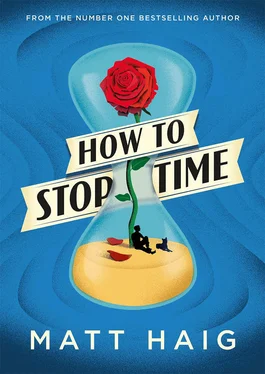
![Мэтт Хейг - Влюбиться в жизнь [Как научиться жить снова, когда ты почти уничтожен депрессией]](/books/28868/mett-hejg-vlyubitsya-v-zhizn-kak-nauchitsya-zhit-sn-thumb.webp)
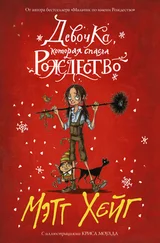
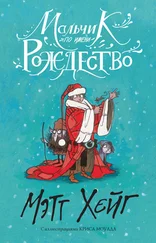
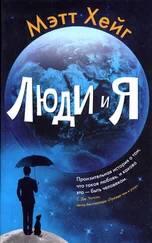


![Мэтт Хейг - Полночная библиотека [litres]](/books/388474/mett-hejg-polnochnaya-biblioteka-litres-thumb.webp)
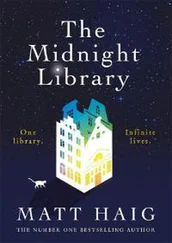
![Мэтт Хейг - Клуб призрачных отцов [litres]](/books/392121/mett-hejg-klub-prizrachnyh-otcov-litres-thumb.webp)

![Мэтт Хейг - Отец Рождество и Я [litres]](/books/421076/mett-hejg-otec-rozhdestvo-i-ya-litres-thumb.webp)
